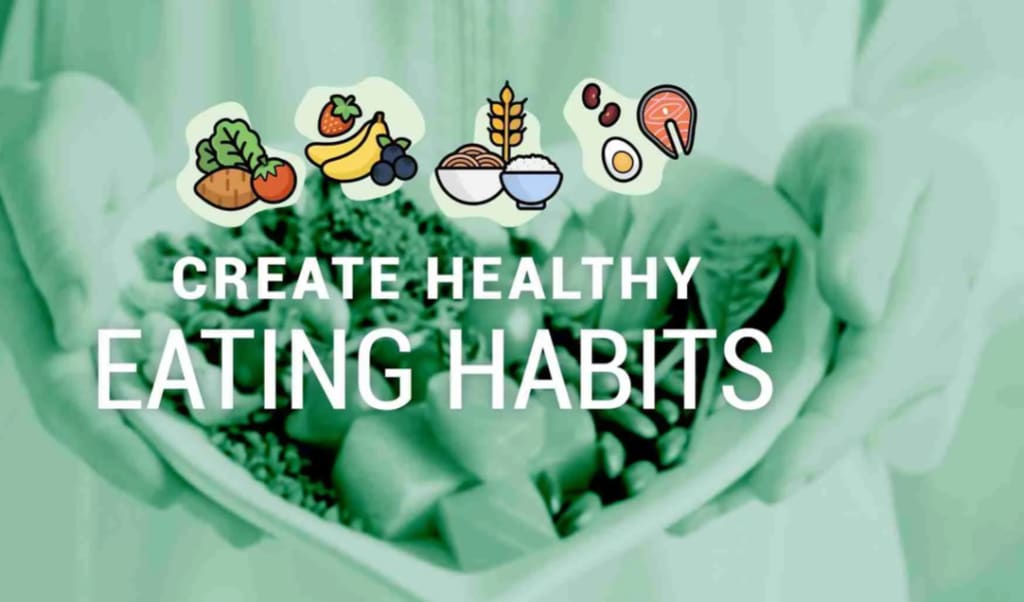
Healthy eating habits are essential for maintaining good health and preventing chronic diseases. In today's fast-paced world, where people are always on the go, it's easy to neglect healthy eating habits and opt for quick and convenient fast food options. However, the long-term effects of such a lifestyle can be detrimental to our health. In this article, we will discuss the importance of healthy eating habits and provide some tips on how to incorporate them into your daily routine.
1. Eat a variety of foods
Eating a variety of foods is important to ensure that your body gets all the nutrients it needs. This means including fruits, vegetables, whole grains, lean protein, and healthy fats in your diet. Each food group provides different nutrients that are essential for good health. For example, fruits and vegetables are rich in vitamins, minerals, and fiber, while whole grains provide carbohydrates for energy and fiber for digestion. Lean protein sources, such as chicken, fish, and beans, provide essential amino acids for building and repairing tissues, while healthy fats, such as those found in nuts, seeds, and avocados, are important for brain function and hormone production.
2. Practice portion control
Portion control is an important aspect of healthy eating habits. Overeating can lead to weight gain and other health problems, such as high blood pressure and diabetes. To practice portion control, you can use smaller plates, measure your food using measuring cups or a food scale, and avoid eating in front of the TV or computer. It's also important to listen to your body's hunger and fullness signals. Eat when you're hungry and stop when you're full.
3. Limit processed foods
Processed foods are often high in sugar, sodium, and unhealthy fats. These types of foods can increase your risk of developing chronic diseases, such as heart disease, diabetes, and cancer. Instead, opt for whole, unprocessed foods as much as possible. These foods are naturally low in sodium, sugar, and unhealthy fats and provide more nutrients than processed foods.
4. Drink plenty of water
Drinking plenty of water is essential for maintaining good health. Water helps to regulate body temperature, transport nutrients, and remove waste products from the body. It's recommended to drink at least 8 glasses of water per day, but this can vary depending on your activity level, age, and other factors. You can also include other beverages, such as herbal tea or unsweetened coffee, to increase your fluid intake.
5. Plan and prepare your meals
Planning and preparing your meals in advance can help you make healthier choices and avoid the temptation of fast food or convenience foods. You can plan your meals for the week, make a grocery list, and prepare your meals in advance. This can save you time and money and help you make healthier choices. When preparing your meals, focus on using fresh, whole ingredients and limit the use of processed foods.
6. Eat mindfully
Eating mindfully means paying attention to your food and the experience of eating. This can help you enjoy your food more and avoid overeating. To eat mindfully, try to eat in a calm and comfortable environment, without distractions such as TV or your phone. Take the time to savor your food and pay attention to the flavors, textures, and smells.
In conclusion, healthy eating habits are essential for maintaining good health and preventing chronic diseases. By eating a variety of foods, practicing portion control, limiting processed foods, drinking plenty of water is essential for maintaining good health. Water helps to regulate body temperature, transport nutrients, and remove waste products from the body. It also helps to keep the skin hydrated and healthy, promote healthy digestion, and prevent constipation. Drinking enough water can also help to prevent dehydration, which can cause fatigue, headaches, and dizziness. In addition, staying hydrated can help to support kidney function and reduce the risk of kidney stones. Overall, drinking plenty of water is important for keeping the body functioning properly and maintaining good health.





Comments
There are no comments for this story
Be the first to respond and start the conversation.